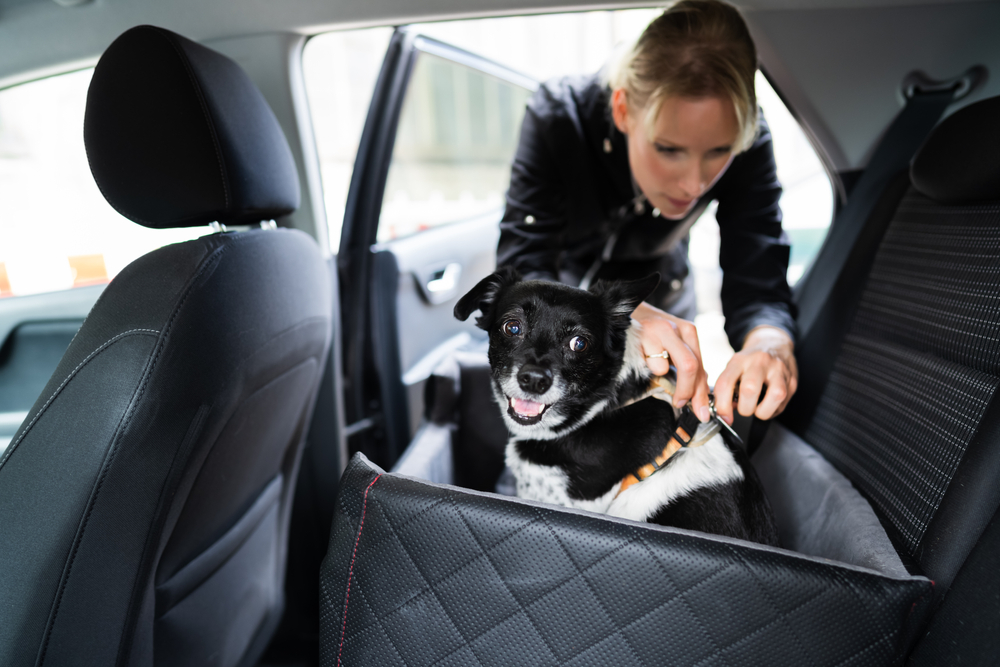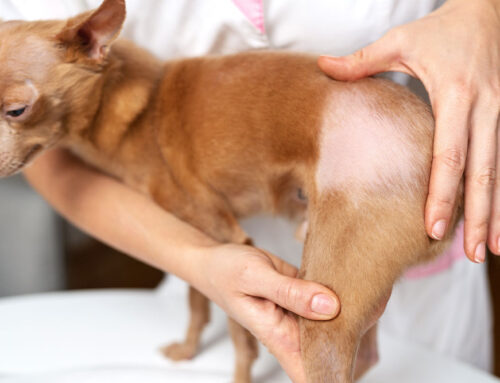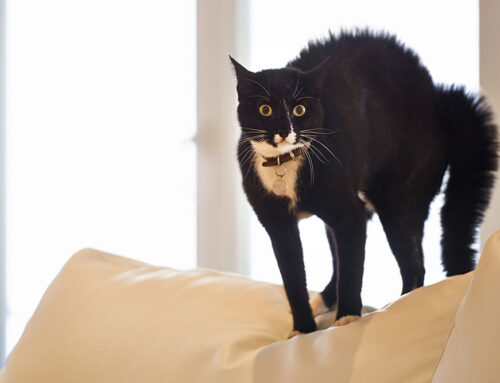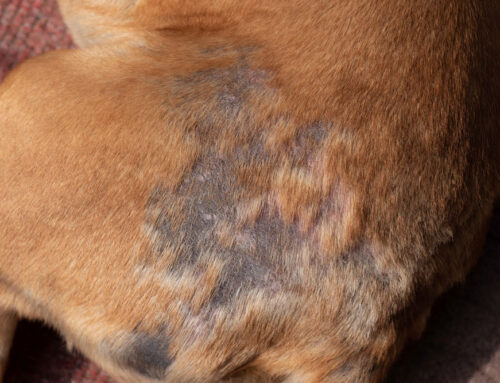July Fourth is the ultimate summer celebration. But, as we honor our country’s history and celebrate our freedom, countless pets are panicking, hiding, or encountering danger.
Sadly, the classic outdoor festivities we know and love—fireworks, cookouts, and parties on the water—are not all fun and games for pets. Protect your dog or cat this summer by following our Tidmore Veterinary Hospital professionals’ tips on the most common July Fourth hazards.
#1: Fireworks and pets
Many pets are fearful of fireworks. The sudden booms, teeth-rattling reverberations, and bright flashes can make dogs and cats dive for cover or run for the nearest exit, which can result in tragedy. Every year countless pets go missing around Independence Day, and many are hit by cars or never return.
If you know July Fourth fireworks—public and private—will be exploding nearby, plan to keep your pet safe and calm by following these recommendations:
- Contact Tidmore Veterinary Hospital about medication to reduce your pet’s anxiety before and during the big event.
- Ensure your pet wears current identification.
- Leave your pet at home if you go to a fireworks display.
- Take your dog outside to eliminate before darkness falls.
- Use calming pheromones or an anti-anxiety wrap to promote calmness.
- Keep your pet in an interior room with a radio on for noise and a long-lasting distraction such as a food-stuffed toy.
#2: Cookouts and pets
Unlike fireworks, cookouts are a July Fourth festivity that hungry pets can appreciate, but their appreciation can mean trouble.
Summer parties center around the grill, and those enticing food aromas naturally attract pets, too. A hungry pet may lose control and snatch food straight off the grill, which could result in pets’ and guests’ painful burns or a fire. In addition, pets who manage to sneak away with their prize are susceptible to choking, lacerations, or gastrointestinal blockage from indigestible foods such as bones and corn cobs. In addition, raw or undercooked meat can make your pet seriously ill.
If your pet loves to mingle, ensure your guests know the rules—no people food for pets. Many summer foods include toxic ingredients such as onions, alcohol, chocolate, and xylitol. Rich and unusual foods can also cause dogs’ painful pancreatitis, requiring hospitalization.
For a cookout experience that does not leave a bad taste in your mouth, keep your pet indoors or supervised at all times.
#3: Water safety and pets
Whether poolside, lakeside, or oceanside, we all want days on the water to last forever. Savor these peaceful moments by ensuring your pet avoids distress and water-related emergencies.
Water-loving pets do not always know their limits and may suffer from exhaustion, excessive water consumption, or heat-related stress. All pets—no matter how well they can swim—should wear a life jacket while they are in or near the water. Ensure your pet takes frequent breaks in a shaded area, and offer them plenty of fresh water. Be vigilant for heatstroke warning signs, such as:
- Heavy panting
- Red or discolored gums
- Incoordination
- Vomiting
- Drooling
- Lethargy
- Collapse
If you suspect your pet is experiencing heatstroke, immediately take them to a cool area, and contact Tidmore Veterinary Hospital or the nearest veterinary emergency facility.
Water intoxication is another common emergency among water-loving dogs who take in too much water while swimming or playing. Signs include:
- Nausea
- Vomiting
- Lethargy and weakness
- Incoordination
- Abdominal distention (i.e., pot-bellied appearance)
- Seizures
Prevent water intoxication by limiting your dog’s time in or near the water. If your pet experiences water intoxication, treatment is necessary to correct electrolyte imbalances, so contact Tidmore Veterinary Hospital or the nearest veterinary emergency facility
Finally, remember that if you would not swim in a certain area, your pet should not either. Never let your pet swim in, play in, or drink from dirty, still, or algae-covered water.
#4: Travel and pets

If your July Fourth plans will take you and your furry friend beyond your backyard or local park, consider your pet’s needs before you hit the road. Secrets to safe and stress-free travel include:
- Reservations — Call ahead and ensure your pet will be welcome at every stop along the way, and determine which pet vaccines or health tests each property or transportation mode requires.
- Safe restraint — Unrestrained pets can be hurt or killed in a vehicle accident. Cats should be confined to a carrier, and dogs can be restrained with a seat belt or in a crate.
- Identification — Ensure your pet wears a collar and tags at all times, and confirm or update their microchip registration.
- Veterinary records — Carry a hard and digital copy of your pet’s medical history, current photo, and vaccination verification.
- Parasite prevention — Fleas, ticks, and heartworm-carrying mosquitoes do not take a holiday, so ensure your pet is up to date on their parasite prevention medication.
Prepare your pet for the July Fourth holiday by taking action now to ensure a safe, fun, and memorable celebration for all. If your pet requires vaccine updates for travel, or medication to calm their noise-related anxiety, don’t wait until July third—contact the Tidmore Veterinary Hospital team as soon as possible to schedule an appointment or speak with your pet’s veterinarian.








Leave A Comment